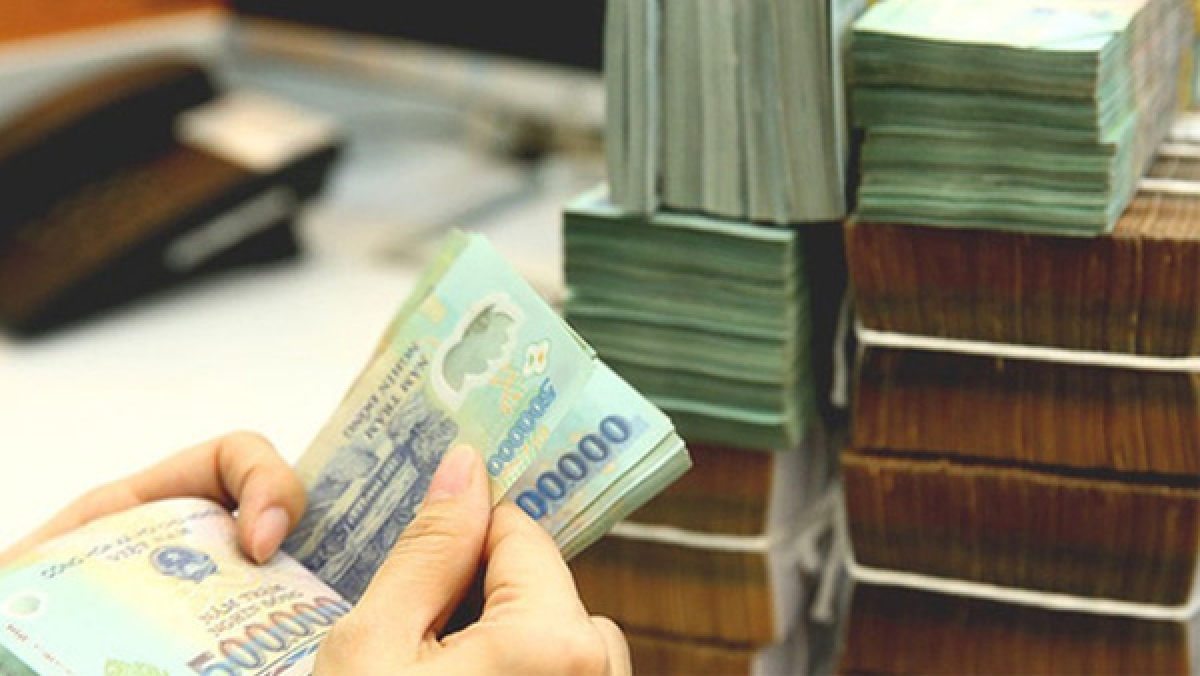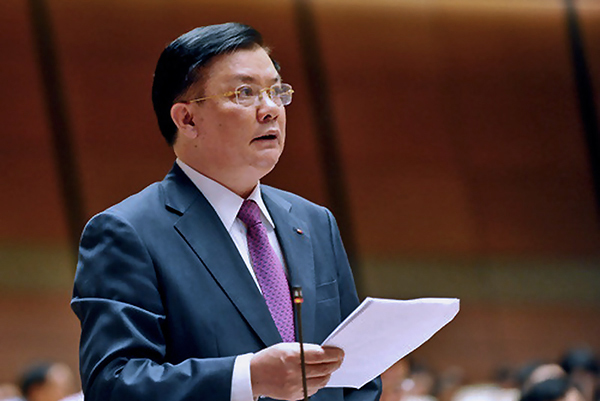In the mood to kick-start the country’s ambition to become a successful hub to attract financial institutions and investors, Minister of Planning and Investment Nguyen Chi Dung has told a recent forum that previous plans for cities like Ho Chi Minh City and Danang to set up international financial centres must be revamped and taken more seriously so that the country is not left behind in this regard.
As such, the minister explained, more concrete plans for such a centre must be carried forward this year by hiring consultancies and building detailed plans in order to report to the government and the Politburo.
“An international financial centre (IFC) would attract international capital and increase government revenues,” Dung said. “Building a capable financial centre in Vietnam will be a priority. If we do nothing now, we could miss out on it completely.”
The dream to create an IFC in the country is not a new one, but previous proposals have failed to leave the starting blocks thus far. Such a financial centre, which could comprise of a region or city with a full financial hub with direct access to major capital pools from banks, insurance companies, investment funds, and listed capital markets, would enable companies, institutions, and individuals from around the world to meet needs like financing supply chains and managing risks.
Singapore was one such location which did everything in its power to achieve such a dream over recent decades, and it is now reaping the rewards.
As Prof. Dr. Tran Ngoc Tho from the School of Finance at the University of Economics in Ho Chi Minh City explained, “In 2001 then-Deputy Prime Minister Lee Hsien Loong made a speech vowing that Singapore’s IFC would be able to create prosperity for not only the country but also for the whole region.”
Today, Tho added, Singapore’s IFC has developed beyond the country’s borderlines and is now among the major financial hubs alongside London and New York.
“With its important geographical location, Vietnam is also expected to have its own IFC, which would contribute to enriching the nation as well as the whole region.”
A suitable vision
IFCs can foster stronger financial cooperation among nations. Qatar, Malaysia, and Turkey have been cooperating to exploit their shared financial market worth $2 trillion, with these nations sharing Qatar’s tech system. It remains to be seen if Vietnam can, or is willing to, work in such a way with neighbouring nations.
Don Lambert, principal private sector development specialist of the Asian Development Bank in Vietnam told VIR, “The operation capacity of Vietnam’s authorities is dependent on what kind of IFC the government plans. Will it focus on attracting financing for Vietnam’s infrastructure and development needs with a longer-term focus on expanding to other countries in the Mekong? If yes, then this is a realistic vision well within the capacity of Vietnam’s authorities.”
However, Lambert added, if focus is more broad then “there needs to be honest self-assessment of what Vietnam offers in comparison to other financial centres.”
He also highlighted that investors may be very keen on Vietnam generally, as they see a fast-growing, stable country with a rapidly expanding middle class.
When a financial centre is completed, it could further facilitate their ability to invest in the country. The foremost priority, Lambert added, is to develop a clear, convincing strategy for the financial centre and one that offers the country competitive advantages over existing regional and international financial centres. Thus, governmental priorities will very much depend on the direction of the strategy.
Ho Chi Minh City prospects
Leading localities such as Ho Chi Minh City and Danang have been required to lay special focus on creating detailed projects and hiring world-class consultants to accelerate the foundation for an IFC, despite the difficulties in getting such initiatives off the ground in terms of policy support and human resources.
In September, a joint venture between Singapore-based Sakae Holdings and SSF Investment Company emerged as a leading bidder for IFC construction in the central city of Danang.
The joint venture is awaiting approval from the prime minister on a potential financial centre, known as Danang Gateways. The newly-established SSF Investment Company is reportedly linked to Sunshine Homes – part of local construction giant Sunshine Group.
In 2018, Ho Chi Minh City Party Committee and People’s Committee assigned Fulbright University Vietnam along with the Ho Chi Minh City Financial Investment State-owned Company to set up a plan to develop the area into a regional and IFC.
At the same time, the city also added the plan to its list of goals as part of its socioeconomic development strategy for the 2021-2030 period, with a vision to 2045.
Nguyen Xuan Thanh, a member of the Prime Minister’s Economic Advisory Group and lecturer at Fulbright University Vietnam, said that Ho Chi Minh City is well behind the likes of Singapore, Hong Kong, and Bangkok when it comes to offering a strong financial centre for the globe. Therefore, Thanh said, the city needs to work with startups especially in order to improve technical infrastructure and cybersecurity, as well as train quality human resources to prepare for developing the city into an IFC.
Nevertheless, currently Ho Chi Minh City is the most attractive financial hub in the country, as it homes over 2,100 banks, credit institutions, and financial services companies.
In previous years, Chairman of Ho Chi Minh City People’s Committee Nguyen Thanh Phong cited the lack of mechanisms, policies, and high-quality human resources as the key obstacles in the way of building a reputable IFC.
Vu Thanh Tu Anh, another member of the Economic Advisory Group, suggested carving out niche approaches to contribute to an IFC in the city.
“Over the past 20 years, Ho Chi Minh City has been oriented to be the financial centre on a national and regional level, but it still in the seeding stage. Thus, it is necessary to thoroughly review the approaches and find other feasible plans which might be different from the previous IFC plans,” he said.
|
Nguyen Chi Dung - Minister of Planning and Investment
Four decades ago, the GDP of the tiny archipelago of the Cayman Islands in the Caribbean was near zero, but after establishment of an offshore IFC, daily cash flow through the Caymans has amounted to $2 trillion. As a British overseas territory, it now attracts around 80 per cent of global hedge funds, even if the actual hedge fund managers work almost exclusively in New York or London. The islands also inherited a professional legal system as per English common law, which was attractive to multinational corporations and investors. However, Vietnam also boasts favourable conditions, from geographical to population advantages, to become a leading jurisdiction for an international financial market. From Ho Chi Minh City it takes only three hours by air to visit all of ASEAN and Northeast Asia. Vietnam also sits in a time zone which is different from 21 other IFCs. This is a very narrow doorway that presents a prime advantage. If any other IFC in the same time zone is established, we will miss this golden opportunity forever. Luke Treloar - Managing director, KPMG’s Global Strategy Group in Vietnam
The Vietnamese government has demonstrated a tremendous capability to innovate and create world-class responses to difficult challenges. We are confident in the willingness of international financial institutions to partner with Vietnam in the development of an IFC. Foreign-invested enterprises will likely enthusiastically support the development of an IFC. Vietnam is growing in priority with many of the world’s largest investors. The creation of an IFC that helps promote trust and transparency, raise Vietnam’s international profile, and accelerate gains in competitiveness will be welcomed by international investors. The Vietnamese government should actively engage with investors and learn from successful case studies of emerging financial destinations such as Singapore, Hong Kong, and the United Arab Emirates. VIR |
Bich Ngoc/Luu Huong

Ministry of Finance announces ten notable events of 2020
The Ministry of Finance has announced a list of ten notable events of Vietnam’s financial sector in 2020.

Pressure on the Finance Minister
As the holder of the keys of the national treasury, Finance Minister Dinh Tien Dung is facing great pressure.

